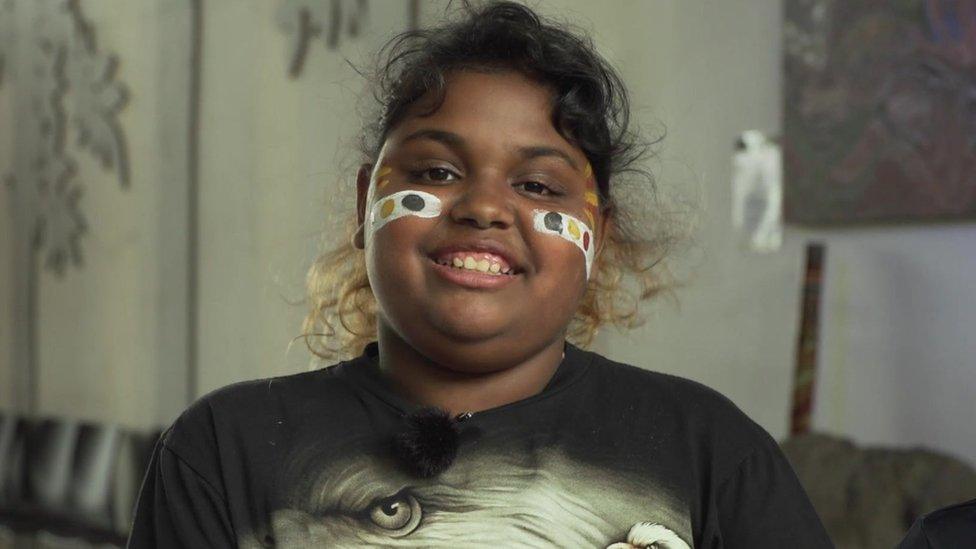Aboriginal spears to be returned to Australia
- Published
- comments
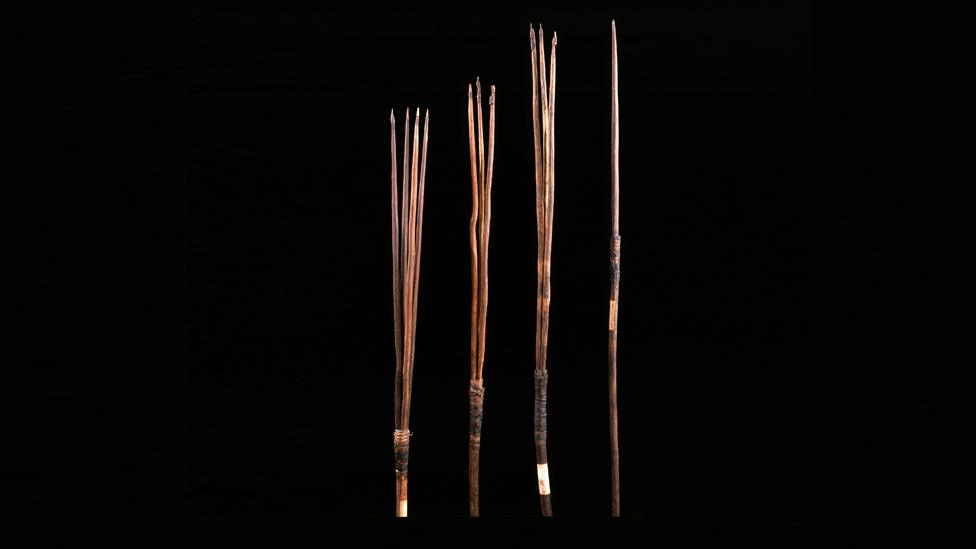
Spears belonging to Aboriginal people and taken by British explorers when they first arrived in Australia, will be given back.
The four wooden spears are believed to be the last of several collected by Captain James Cook and his crew on the ship Endeavour - the first British people to arrive in Australia.
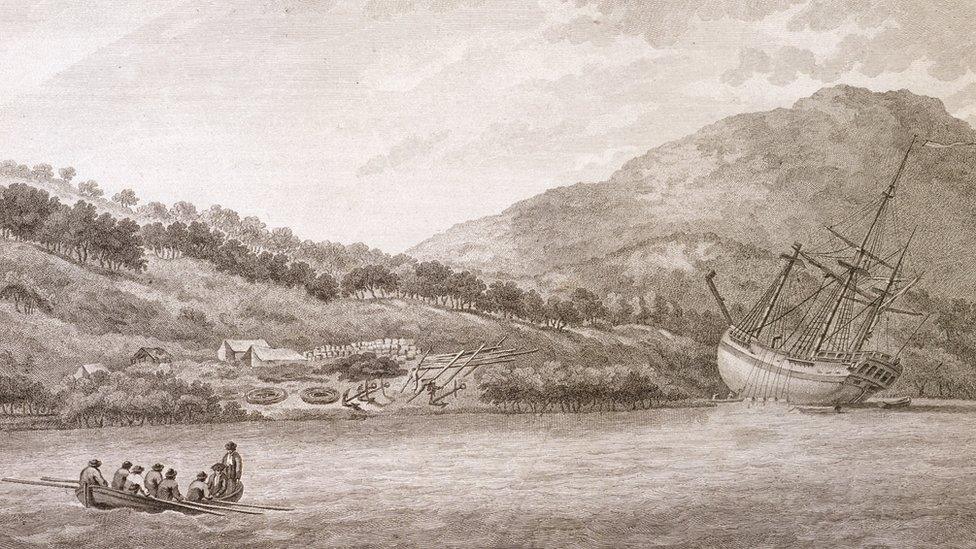
HMB Endeavour [His Majesty's Bark - a type of vessel] sailed for several years around the South Pacific before famously landing in eastern Australia in 1770
Captain Cook first set foot in Australia in 1770 on a beach at Botany Bay, south Sydney.
After arriving, he and his crew were challenged by two men from the Gweagal clan of the Dharawal peoples, the traditional owners of the land.
It's said that the encounter became violent with the indigenous clan retreating into the bush, after muskets - a long barrelled gun of the time - were fired.
Ray Ingrey, chairman of the community's Gujaga Foundation retold the story, saying: "The crew started to go through their campsite, picking up artefacts and anything that they could actually get their hands on... 40 to 50 spears were were bundled up and put on Endeavour."
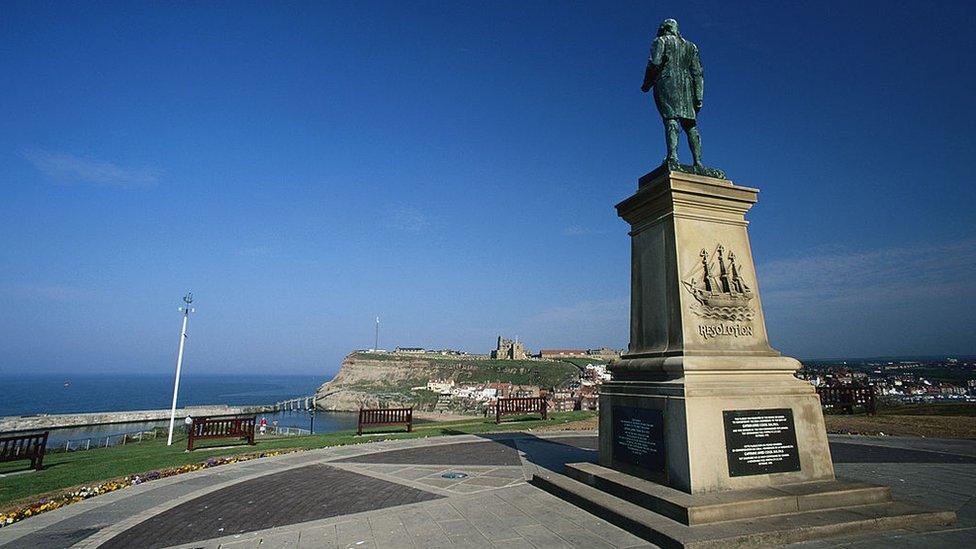
A statue pf Captain Cook looks out from the west cliff of Whitby in Yorkshire
Captain Cook, considered to be one of the world's greatest explorers has previously been celebrated in Australia for his "discovery" of the country and his role in the formation of Australia as it is known today.
However, this view is increasingly controversial because Aboriginal people lived on the land in the Australia for tens of thousands of years before Captain Cook arrived and many blame colonisation for the problems they still face now.
Aboriginal people were forced to move from their traditional lands and many died due to the introduction of unfamiliar diseases brought to Australia by European settlers.
In 2021, Australia officially changed its national anthem to reflect the history of indigenous people and removed reference to the country being "young and free".
Returning the spears
Australian kids explain about Aboriginal culture
After a 20-year campaign by indigenous people the UK's Cambridge University - which has the spears - has to agreed to give them back.
Speaking to the BBC, Ray Ingrey explained why the return of the spears is so important: "Not only that they're over 253 years old, and gives us a window into our historic past, but also toward that spiritual connection, which makes it so more important."
The spears were carried back to the UK and donated to Cambridge University's Trinity College in 1771.
Apart from short loans to Australian museums, they have been looked after by Cambridge's Museum of Archaeology and Anthropology (MAA) since 1914.
Professor Nicholas Thomas, director of the MAA, said the spears were "exceptionally significant".
"They are the first artefacts collected by any European from any part of Australia ... they reflect the beginnings of a history of misunderstanding and conflict.
"Their significance will be powerfully enhanced through return to Country."
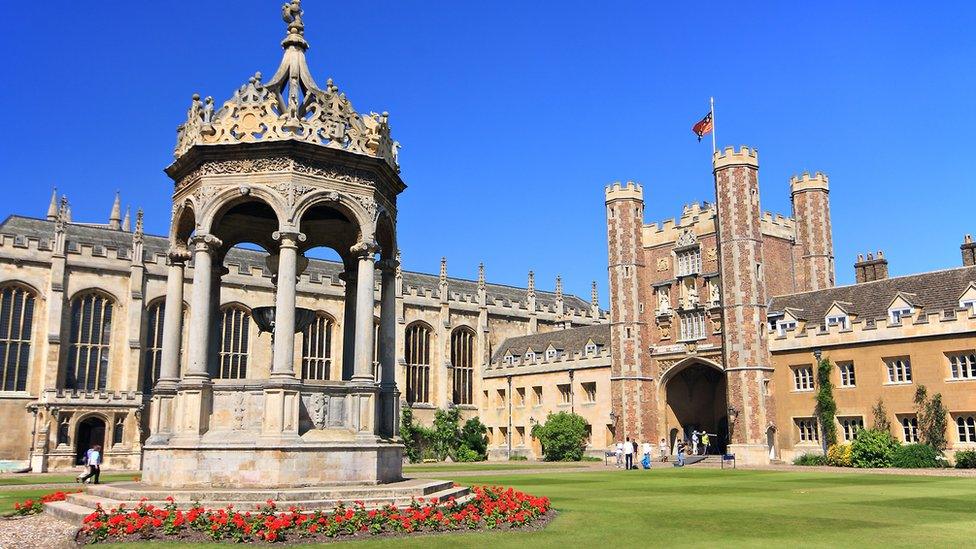
The spears have been held by Trinity College in Cambridge for the majority of 250 years
Ray Ingrey said the moment held "mixed emotions" for him, but acknowledged the role Trinity College played in preserving the spears in good condition.
"It's been a long time for us. Our elders, over 20 years ago, started a campaign to return cultural objects.
"A lot of elders, particularly our senior women, are no longer with us. It's a day of happiness, but also sadness because they're not here to celebrate with us.
"It's also a day for all Australians, and even the British community, to reflect on on our history."
- Published2 February 2023
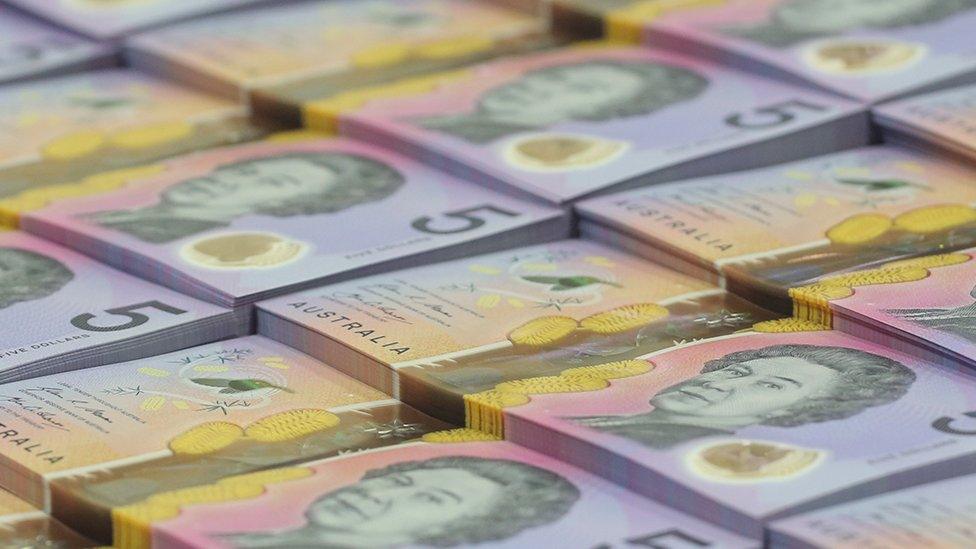
- Published10 April 2018
